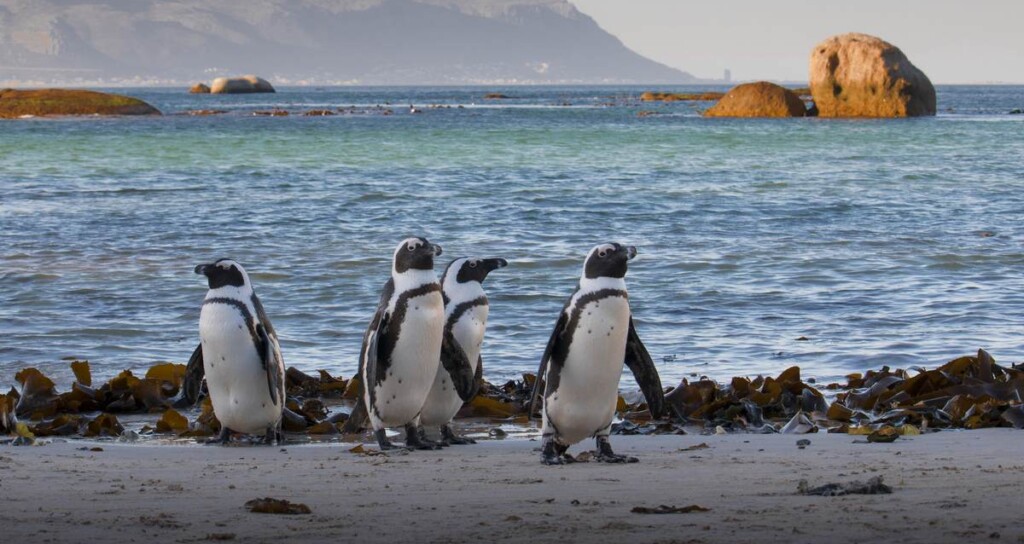
African penguins on a Cape Coast beach – credit S Martin, CC 2.0., via FlickrFor a critically endangered species of penguin, a recent decision to remove fishing competition from its hunting and breeding grounds may prove to be the key to saving it.In the rich waters of South Africa’s cape and Atlantic coastlines, 6 key breeding colonies of the African penguin are now no-go zones for commercial sardine and anchovy harvesting, according to a recent court order.Less than 10,000 breeding pairs of this penguin survive, and conservation groups hailed the court’s decision that will protect the colony’s feeding areas for at least a decade.“This order of court is a historic victory in the ongoing battle to save the critically endangered African Penguin from extinction in the wild,” said BirdLife South Africa, one of the groups that had called for the protection.The protected areas include Robben Island where Nelson Mandela was imprisoned for 18 years. Dassen Island, further up South Africa’s Atlantic coast, and the Stony Point Nature Reserve, make up two of the other 6 areas in total where penguin protections are kicking in.The court’s decision followed weeks of “exceptionally hard work and negotiations between the conservation NGOs and the commercial sardine and anchovy fishing industry,” according to SANCCOB, one of those very NGOs.“This...

